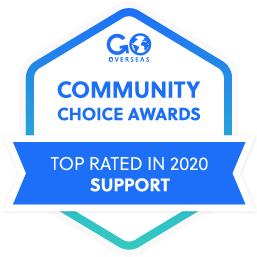Even though the spring ’20 semester ended early due to COVID-19, students still had productive and meaningful volunteer experiences during their time in Athens. CYA has conducted interviews with volunteers from the spring ’20 class, and we will be publishing some of them on the CYA Blog. Bliss Perry spent his semester teaching coding to refugee students with
Social Hackers Academy, and continues to work for the organization now that he’s returned home.
“My time working with Social Hackers Academy (SHA) was easily one of the main highlights of my experience in Greece. The organization is very well-run, the fellow volunteers were extremely welcoming and friendly, and my students were outstandingly sharp, enthusiastic, and motivated. I’d highly recommend it as a future volunteering opportunity for any CYA students interested in computer science, technology, or entrepreneurship in general, and I have remained quite involved with the group remotely even after leaving Athens.
How did you decide to volunteer? How did CYA help you find the best fit for you?
I want to provide some basics about the organization and my responsibilities, since to my understanding I’m the first CYA student to work there. SHA seeks to provide tech education in the form of 7-month long coding bootcamps for refugees and other economically vulnerable groups in Athens. I’ve taught coding at Harvard and other settings in the US, so when I found this organization online before coming to Athens, it seemed like a natural fit. I reached out virtually to the managing director via LinkedIn, and during my first week in Athens I went in for an interview and started volunteering immediately afterwards that evening.
My main responsibilities consisted of serving as a mentor and advisor for a group of five students who were working on their final project, a social media site seeking to provide a centralized place for local NGOs to create profiles, receive messages, post status updates, etc. – all coded from scratch. I came into the office for at least three hours every
Monday and
Wednesday evening, and sometimes other days as well – I even taught my students online the week we traveled to the Peloponnese! My students already entered the project with great coding and communication skills (and excellent English!) – so I created workshops for them to learn scrum (a common methodology for organizing workflow on software projects), GitHub (software used for sharing code – like Google Drive for code), and effective leadership strategies for fostering the responsibility and accountability needed to produce a well-functioning team. In addition, I conducted two series of school-wide workshops – one on algorithms, and one on data science – and, for my birthday in April, I raised over 3000 euros in donations for the organization (
https://social-hackers-academy-2.causevox.com/bliss-perry-birthday-fundraiser). Now, I’ve been working on creating a curriculum covering the basics of entrepreneurship (innovation, accounting/finance, strategy, and marketing) and putting together a series of guest speakers – who are successful startup founders from the US and Europe – to accompany this course.
Do you think you gave back to the community and how?
In my opinion, Social Hackers Academy is a very special organization in Athens because it seeks to offer a sustainable solution to the refugee crisis in Greece through empowering its students with a path towards a prosperous career in the ever-growing tech industry. With that in mind, I’m very thankful to have been entrusted with such a rewarding and important responsibility to help foster such a critical phase of career development. As a mentor, I’ve sought to empower my talented students by emphasizing our similarities rather than differences – most of all, our shared love of technology and desire to harness its power to make the world a better place – and by urging them to think ambitiously about careers at famous tech companies or further education in the US or elsewhere. I’d consider it a resounding success if these efforts have played any role in helping to move my students one step closer to their goals.
What was your favorite moment from volunteering? And the most meaningful?
The best moment I had at SHA was a workshop on algorithms which I taught in late February. The room was packed with students, and their enthusiasm for the material was palpable at all points during my two-hour session. I like to make my lectures as interactive as possible, and, whenever I had a question, half of the room immediately raised their hands, often responding to each other’s comments about the fine points of algebra or Python. All this technical material, however, is not to say that we didn’t have any fun: paying homage to a classic ritual performed by my CS professor at school, David Malan, I ended my lecture by ripping a phone book in half to illustrate the “binary search” algorithm. That night really made clear my students’ sheer passion and motivation, and I was so happy when many of them sent me Slack messages that evening to ask about more ways they could keep studying algorithms beyond the workshop!

Bliss teaching algorithms at SHA
Do you think volunteering changed your view of Athens? Why or why not?
Although Athens is best known for its ancient history, working with SHA allowed me to explore another side of the city – its growing status as a regional hub for technology and entrepreneurship. SHA is very well-plugged-in to the city’s tech ecosystem, and I relished every moment of my time spent with the local software developers, expat volunteers, and tech-savvy students. One day, for example, a fellow volunteer took me to visit Hackerspace.gr (https://www.hackerspace.gr/), a space open to the public for coders, engineers, and builders to work on personal projects. Especially since CYA is a more humanities-focused program, it was very great to dip my toes in Athens’ tech scene through SHA!
Did volunteering encourage you to explore different parts of Athens/Greece?
SHA is located on a vibrant street near Omonoia square which is marked by signage in Bengali in addition to Greek, and by street-vendors selling delicious South Asian fast food rather than gyros or souvlaki. Ever since my first day working there, I fell in love with the neighborhood and the contrast it posed with the rest of Athens. Spending time at SHA and exploring the restaurants and shops of its environs showed me a pocket of diversity in Athens which greatly augmented my perception of the city, and helped to contextualize some of the reading I’d been doing in classes at CYA about the refugee crisis which has affected Greece greatly in recent years.
Did you meet any new friends while volunteering?
Of course! My supervisor Abed, the organization’s Head of Education and the recipient of a Vodafone Foundation grant, is definitely the closest connection I made at the organization, but I also became good friends with my five students, who hailed from places as far as Afghanistan and Sierra Leone but all shared a common passion for technology and its global potential. Additionally, it was a fun experience to get to know my fellow volunteers – whether Greek software developers, German consultants, or American video game artists – and to hear their best recommendations for the coolest restaurants, music venues, and activities in Athens, which gave me constant motivation to explore the whole city of Athens beyond just Pangrati.”
Tags:
Academics,
Athens,
coding,
College Year in Athens,
Community,
CYA Experience,
CYA students,
refugees,
student life,
Student Volunteering,
Study abroad,
Study Abroad in Greece,
The CYA Experience,
volunteer,
volunteering







